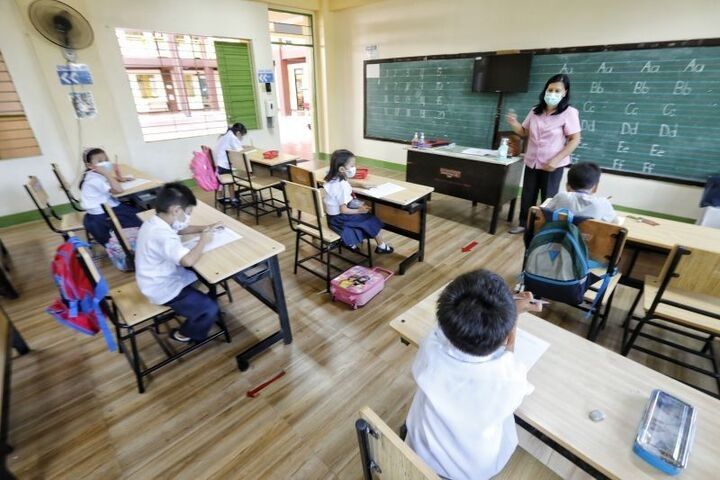Business groups urge gov't to curb malnutrition to improve education outcomes

MANILA, Philippines — The private sector and business groups have called on the Marcos administration to solve children’s undernutrition, which had led to students’ underwhelming performance in schools.
At a forum co-led by Philippine Business for Education (PBEd), Philippine Business for Social Progress (PBSP) and Makati Business Club (MBC), leaders in the business industry sounded the alarm on how the COVID-19 pandemic and rising inflation could deepen poverty and lead to even more stunting, or when a child is small in size for their age.
“Child malnutrition caused by poverty leads to poor learning. Poor learning leads to poverty, and poverty leads to malnutrition. It's a vicious cycle that affects at least 26 million Filipinos. We need to stop it now,” said PBEd President Chito Salazar.
In a joint statement by the groups, they urged the government and the private sector to invest in nutrition and education, which would “increase human capital” and “improve economic growth.”
“For decades, our human capital has been neglected. One in every three children and below are stunted. Nine out of 10 learners are not able to meet minimum reading skills,” the groups said.
PBSP Executive Director Elvin Uy said that the Philippines still faces significant challenges in achieving zero hunger, with the pandemic resulting in even more food-insecure Filipinos at 59 million.
The Philippines also ranked 68th out of 116 countries worldwide in 2021 with a high prevalence of hunger based on the Global Hunger Index, Uy added.
Likewise, Uy said that the Philippines' score of 0.52 on the Human Capital Index in 2020 means that in terms of productivity, every child born today would only achieve half of what they could have achieved with complete education and full health.
A World Bank report from 2021 shows that in three decades, there have been little improvements in the prevalence of undernutrition in the Philippines, with one in three children younger than five years old suffering from stunting based on 2019 data.
The same report shows that the country is among the 10 countries in the world with the highest number of stunted children.
Proposals
During the forum, the groups presented strategies and proposals that would lead to better nutrition and education outcomes.
For nutrition, the groups proposed the following:
- Develop accessible and free programs for at-risk mothers that would target their nutrition needs in the first 1,000 days
- Urge local governments to partner with the private sector to implement the Philippine Plan of Action for Nutrition
- Support vulnerable households by expanding economic opportunities and making nutritious food more accessible
- Empower farmers with climate-smart resources, technology and services towards improved yield, efficiency and resilience
For education, the groups proposed the following:
- Ensure students’ access to quality pre-Kindergarten to Grade 3 education
- Improve the quality of instruction so that students achieve all basic skills by international standards
- Use the lens of lifelong learning in workforce development, with industry and academe keeping each other in the loop on necessary skills
- Fully leverage private education to better complement the delivery of services
- Strengthen autonomy of schools and local government while holding them to account
Vice President and Education Secretary Sara Duterte has set her eyes on conducting full in-person classes by November.
- Latest
- Trending

































